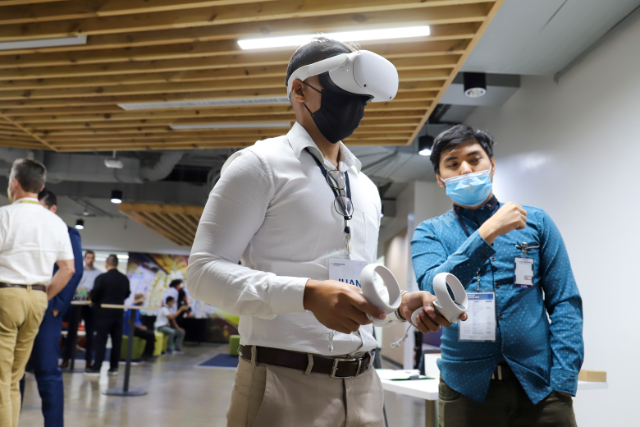The National Economic and Development Authority (NEDA) has underscored the importance of using extended reality (XR) technologies that would further develop and enhance the skills of the Filipino workforce.

Extended reality (XR) is a catch-all term to refer to augmented reality (AR), virtual reality (VR), and mixed reality (MR).
NEDA undersecretary Rosemarie Edillon said that XR technologies would allow individuals to learn complex skills in a simulated environment, providing a safe space to develop and practice new abilities.
Edillon told a recent Manila Skill Experts’ meeting utilizing new technologies could enhance the skills of the Filipino workforce, which can drive long-term economic growth and social progress in the country, and announced a nationwide promotion of extended reality (XR) as a new medium for skills development and learning.
“These efforts align with the technology and innovation strategies outlined in the Philippine Development Plan (PDP) 2023-2028. The plan aims to strengthen knowledge creation, and basic research and development to enhance the quantity and quality of the country’s human capital,” said Edillon.
Edillon cited video games as an example of extended reality, in which players are offered a more holistic experience.
“The audience is an active participant in an immersive experience that takes place in a world different from our own,” she said.
“When utilized effectively, digital transformation can yield high-value outcomes and innovations that enhance the efficiency and competitiveness of various sectors. “The benefits of XR in skills training require understanding when and how to utilize these technologies,” Edillon stressed.
Edillon said that this approach must be complemented by other learning strategies, such as group sessions, real-life models, and performance-based assessments.
“Utilizing XR technologies in technical and vocational training can revolutionize the way we train. Collaboration among government agencies, training institutions, technology providers, content creators, and other stakeholders will be crucial in redesigning our training programs,” she emphasized.
The Manila Skill Experts’ Meeting was hosted by the Technical Education and Skills Development Authority in collaboration with the International Labor Organization’s International Training Center and Skills for Prosperity – Philippines.




